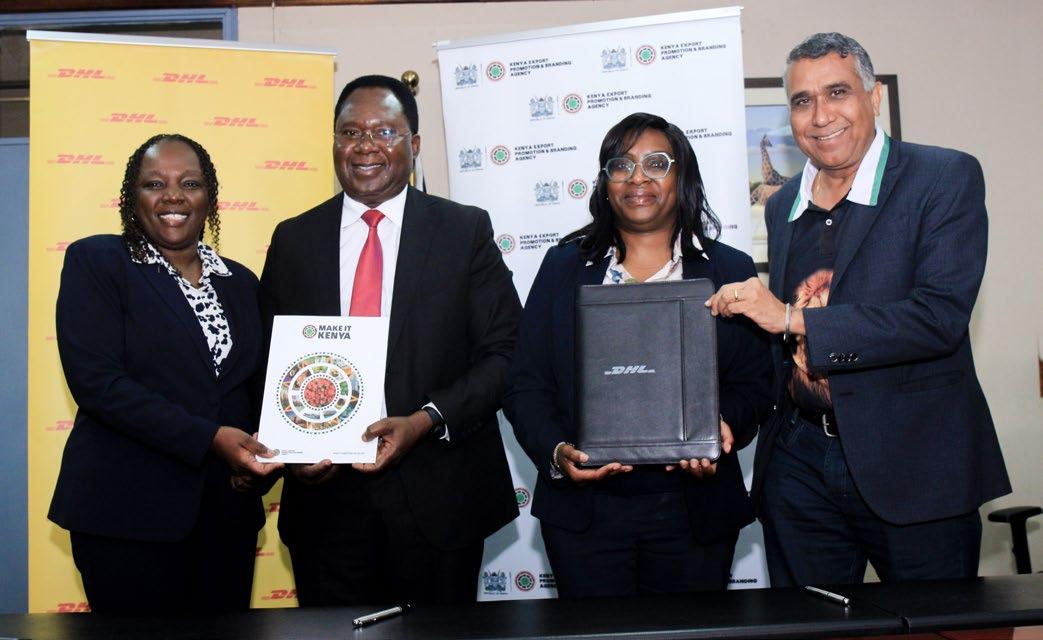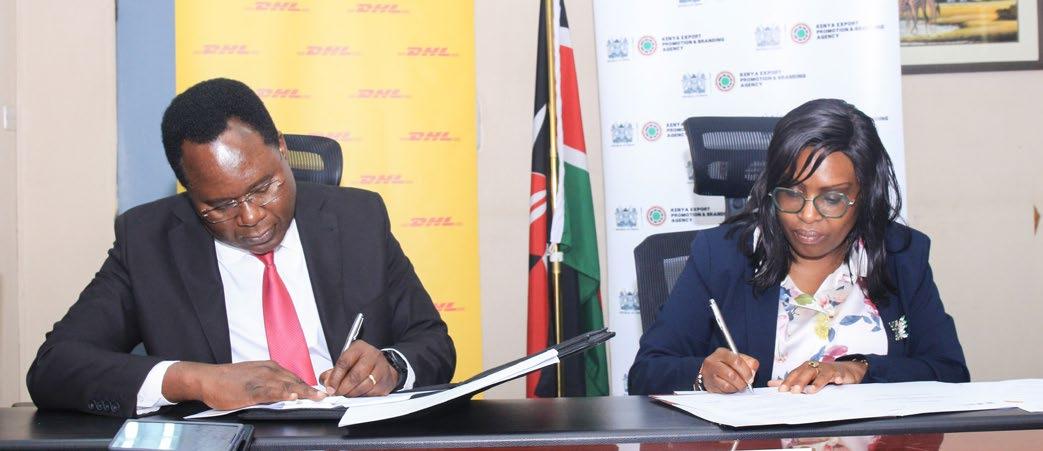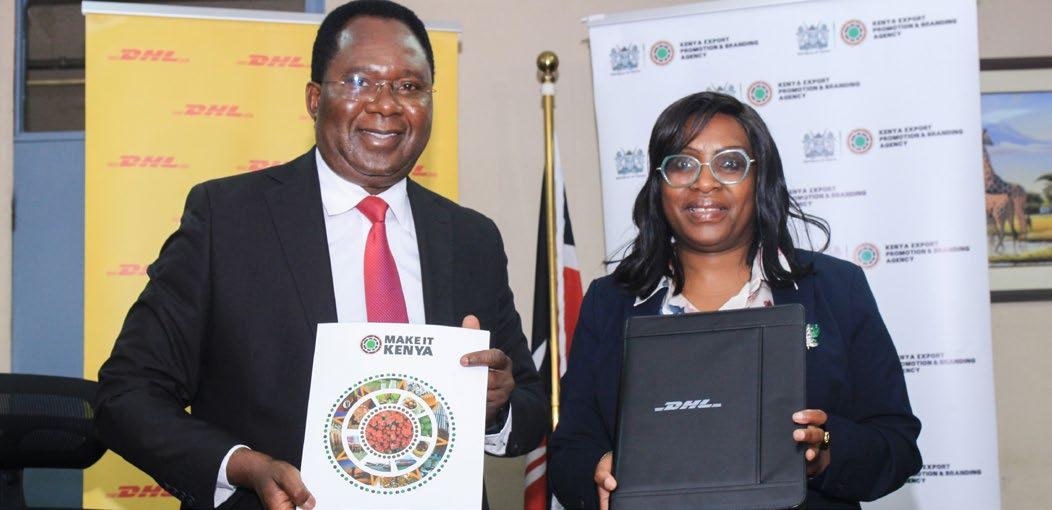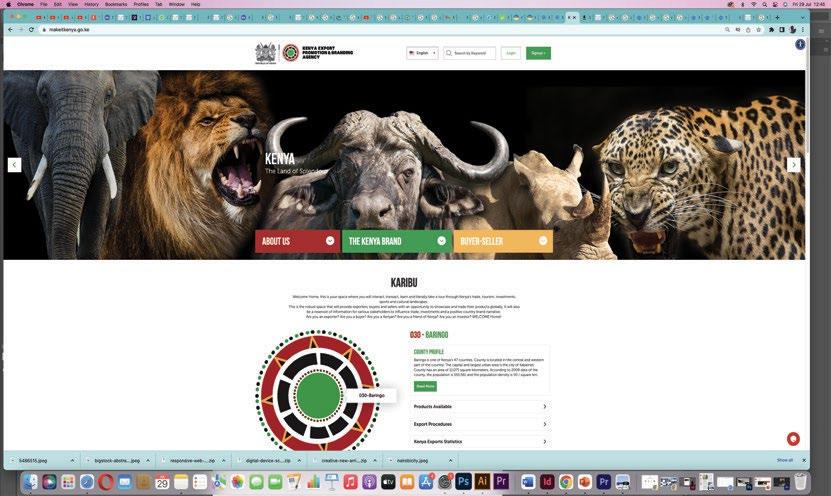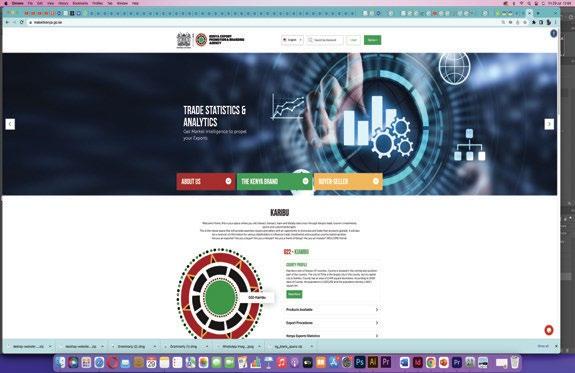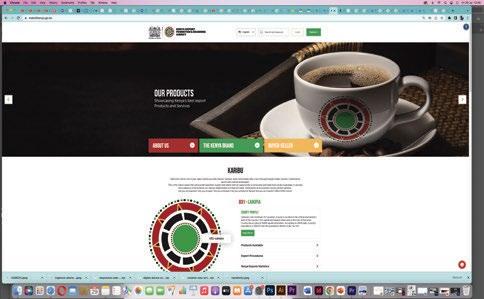
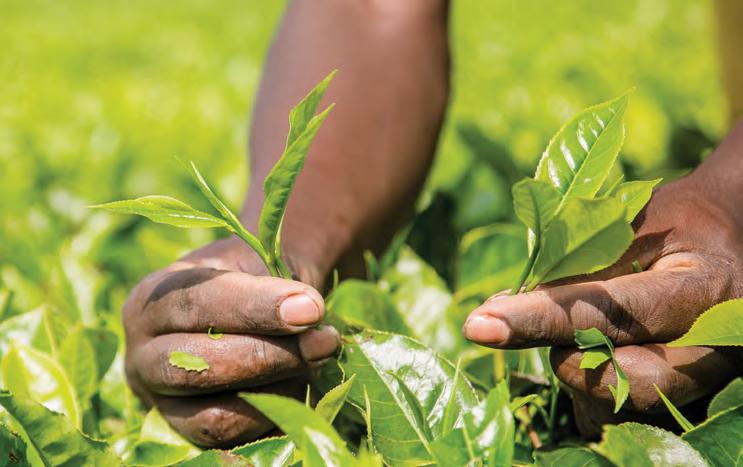
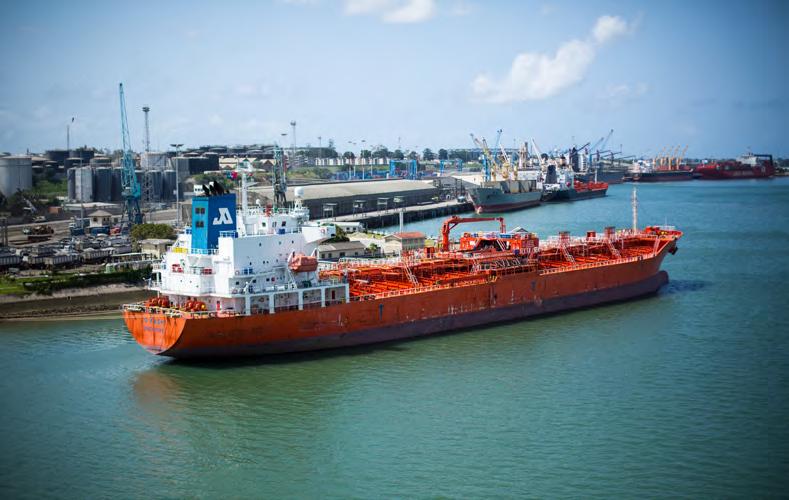






By Floice Mukabana: chiefexe@brand.ke
The African growth story continues to inspire confidence. According to the African Development Bank, West Africa’s GDP is projected to expand by 4.2% in 2024, while North Africa is rebounding strongly to around 3.9%. These regions are becoming centres of rising consumer classes, advanced manufacturing, and digital transformation.
Kenya recently hosted the 24th COMESA Summit of Heads of State and Government, a powerful statement of our central role in regional integration. Hosting this gathering of leaders places Nairobi at the heart of continental trade and policy conversations, providing an unparalleled platform to advance Kenya’s export agenda, strengthen regional partnerships, and showcase our readiness to drive Africa’s economic transformation.
In 2024, the Common Market for Eastern and Southern Africa (COMESA) recorded exports valued at USD 176 billion, representing 0.7% of global exports. The top export products from COMESA included crude petroleum oils (USD 30.4 billion, 17.3%), refined copper and copper alloys (USD 21.0 billion, 11.9%), gold including gold plated with platinum (USD 9.3 billion, 5.3%), unrefined copper (USD 7.0 billion, 4.0%), and petroleum oils excluding crude (USD 6.4 billion, 3.6%). The leading exporters within the bloc for 2024 were Congo with USD 2.0 billion (15.7%), Libya with USD 2.0 billion (15.4%), and Egypt, which accounted for USD 1.4 billion (11.1%) of exports. These figures highlight COMESA’s significant role in the region’s trade landscape and its strong dependence on mineral and petroleum products.
Continue on page 2 >>>
Kenya can unlock global export potential through COMESA
Kenya You Can Do Business With
Kenya showcases mining potential at Africa Down Under Conference in Australia
KEPROBA–DHL Export Readiness Webinar
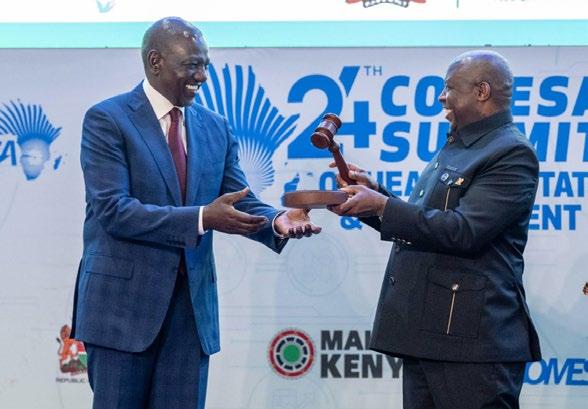
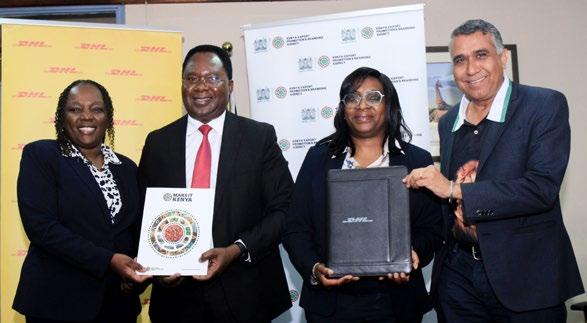
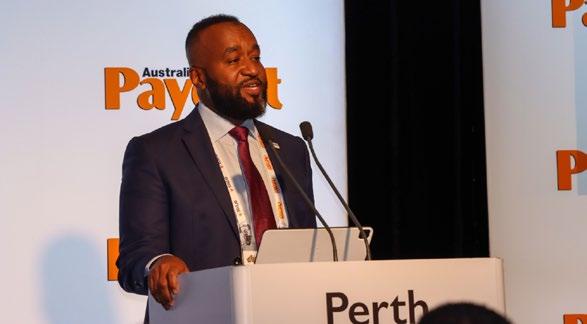
Maureen Mambo- Editor -inChief
Mariam Maina - Editor
CONTRIBUTORS
Floice Mukabana
Mariam Maina
Gertrude Mirobi
Samuel Njaaga - Layout
COMESA at a Glance (2024)
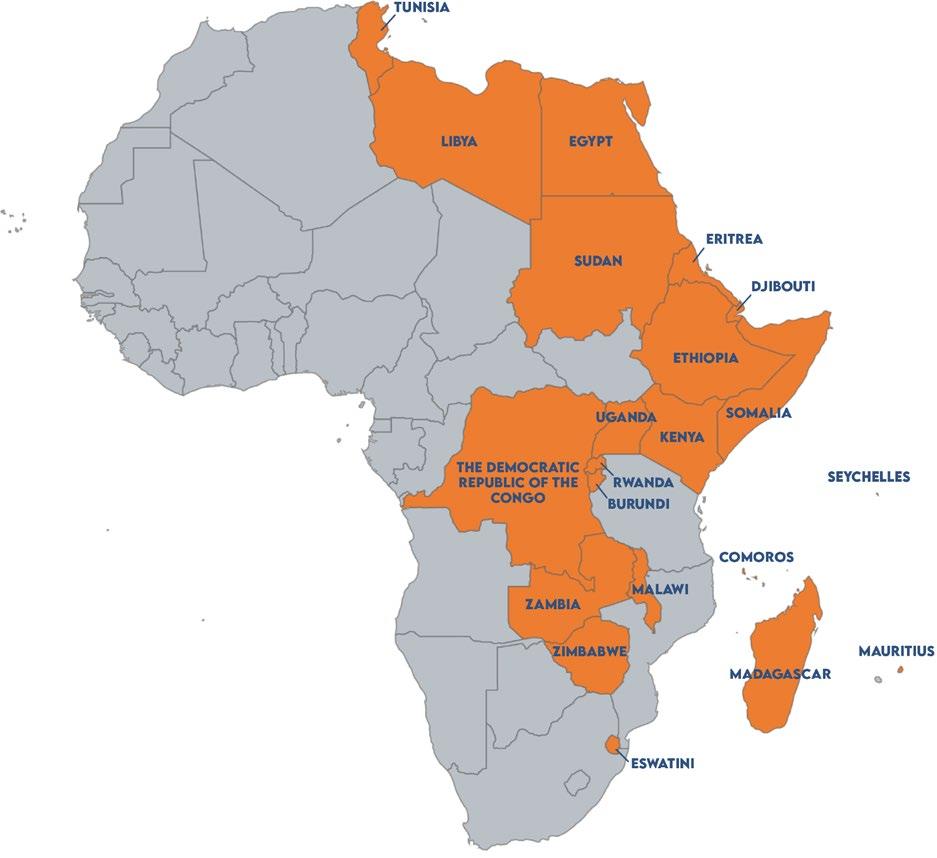
USD 176 billion 0.7% of global exports
Crude Petroleum Oils – USD 30.4B (17.3%)
Refined copper/alloys – USD 21.0B (11.9%)
(5.3%)
(4.0%)

account for 29.7% of Kenya’s total exports to COMESA)
Strengthen Kenya’s brand as a symbol of quality and reliability
Support expansion into COMESA, North, and West Africa
Kenya, as one of the founding members of Common Market for Eastern and Southern Africa (COMESA), has benefitted immensely from the regional bloc. This is because Kenya has a big market share in COMESA, which is around 16%. Kenya, in terms of earnings from COMESA, is almost getting to 3 billion USD.
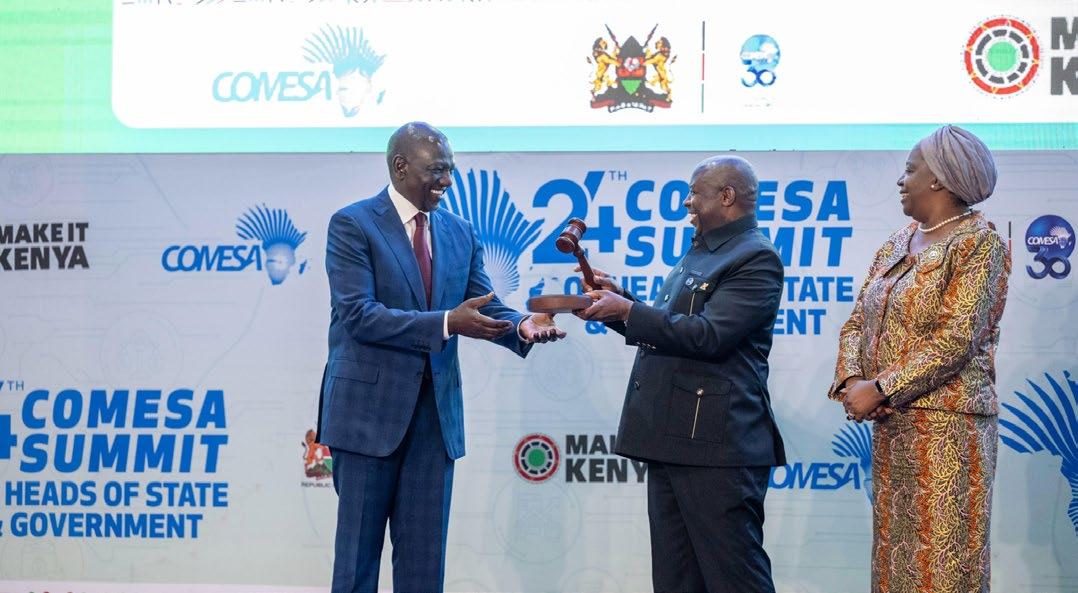
The value of Kenya’s exports to COMESA stood at USD 2,229.5 million in 2024. Kenya’s key export product to COMESA in 2024 was Tea, whether flavoured (USD 212.5 million), Cement (USD 124.5 million), Petroleum oils and oils obtained from bituminous mineral (excl. crude) (USD 123.7 million), Medicaments (USD 107.2 million), and Palm oil and its fractions (USD 94.2 million). The top 5 export products constituted 29.7% of Kenya’s total exports to COMESA indicating slight value addition and little diversification of the Kenya’s export basket.
Within COMESA, reforms that simplify customs and harmonize standards are making trade more seamless. Kenya’s exports to COMESA countries already account for nearly a third of our regional trade, with tea, coffee, textiles, and manufactured goods enjoying strong demand in markets such as Uganda, Rwanda, Zambia, and the Democratic Republic of Congo.
As mentioned before, Kenya’s exports to COMESA were values at USD 2,229.5 million in 2024 representing a 0.96% decrease from USD 2,208.4 million in 2023. Kenya’s exports to COMESA averaged USD 1,865.5 million between 2015 and 2024. Imports from COMESA was USD 984.9 million in 2024 representing a 1.07% decrease from USD 995.6 million in 2023. Kenya’s imports on the other hand were valued at an average of USD 997.4 million in the reviewed period.

AfCFTA is amplifying this momentum. By reducing tariffs and dismantling non-tariff barriers, it is projected to increase intraAfrican trade by over 50% by 2035. For Kenyan businesses, this translates into faster scaling, wider access, and a more level playing field across the continent. At KEPROBA, our responsibility is to equip exporters with market intelligence, build their capacity, and position the Kenya brand as a symbol of quality and reliability. Kenyan exporters can and should lead this new era expanding in COMESA, North and West Africa, and leveraging all available platforms.
This is more than a story of market expansion. It is about job creation, nation branding, and ensuring Kenyan products stand where they belong at the very center of global trade flows.
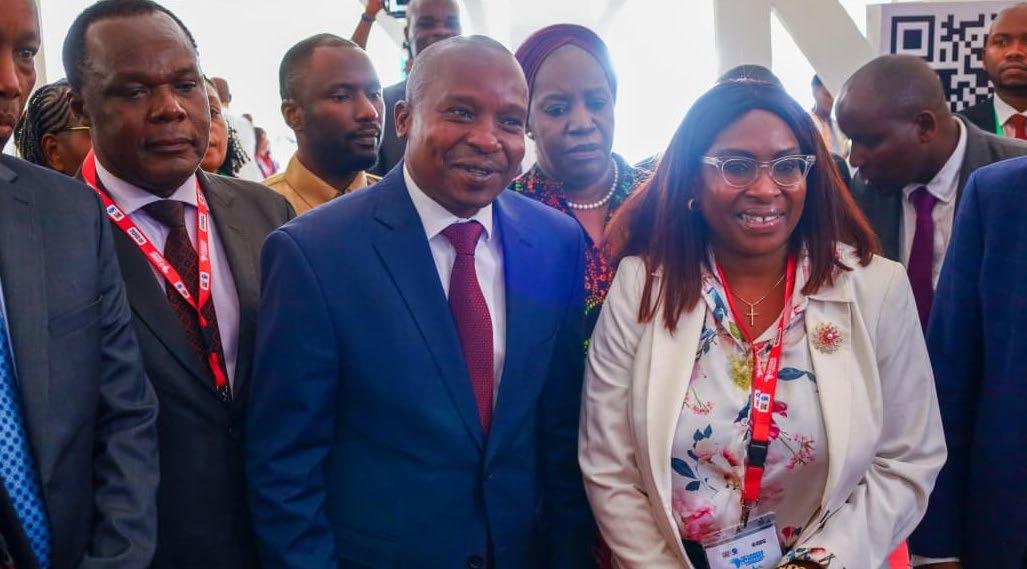

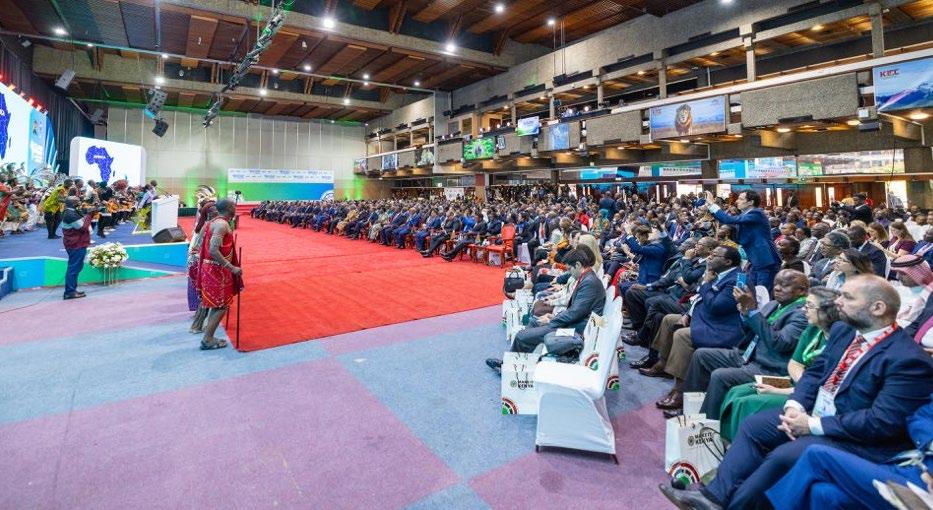

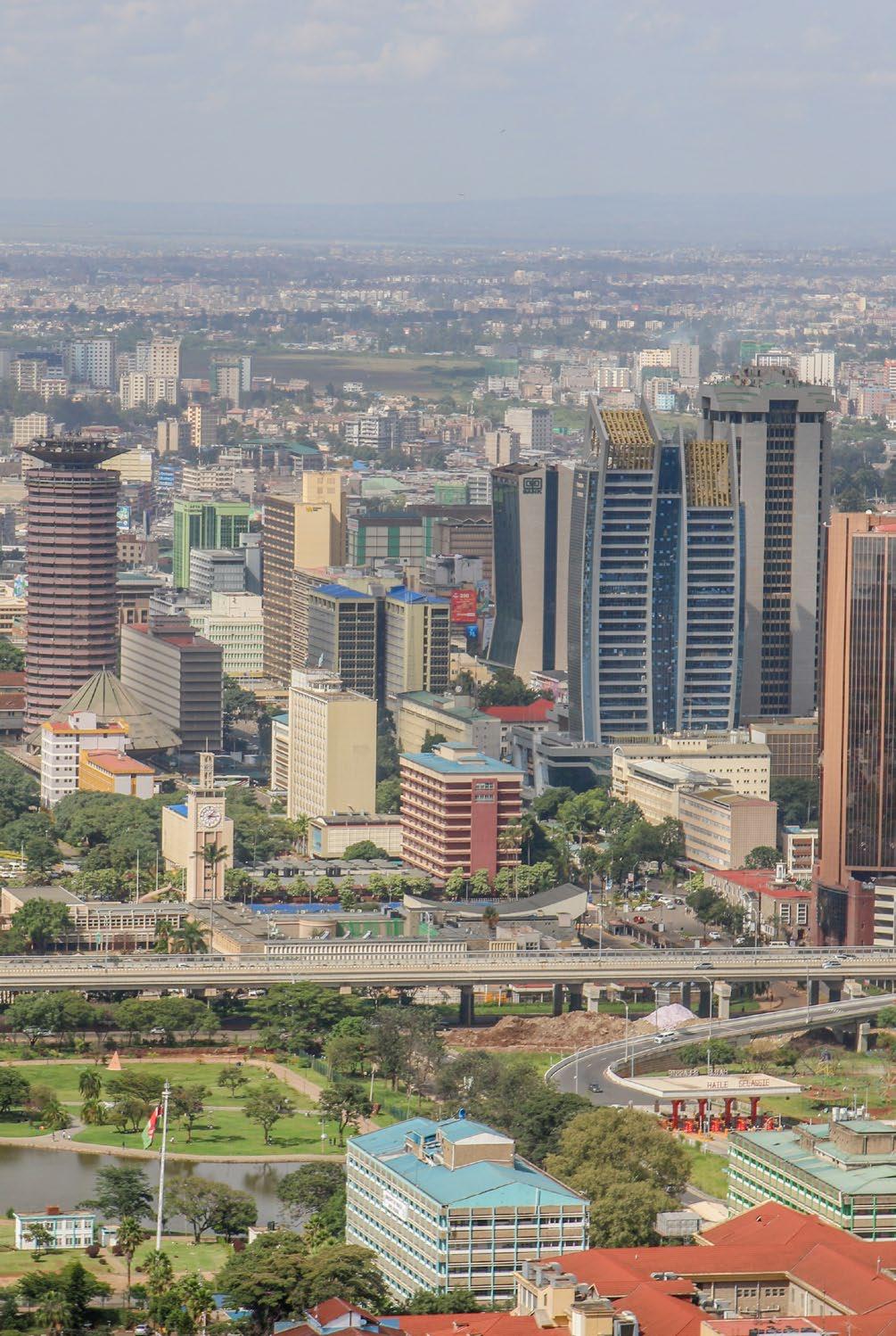
As the global economy becomes increasingly interconnected, stakeholders are seeking reliable, sustainable and strategically located partners to meet growing consumer demands. Kenya stands out as a compelling choice with a clear promise to global buyers: dependable infrastructure, strict standards compliance and mutually beneficial partnerships.
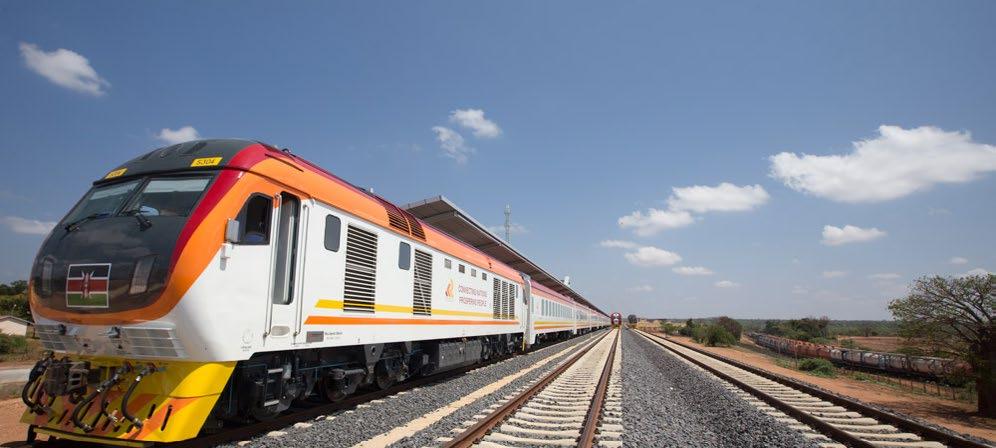
Kenya’s coastal location along the Indian Ocean, anchored by the Port of Mombasa, provides critical maritime access to global markets. This is supported by major infrastructure like the Standard Gauge Railway
(SGR) and expansive road networks connecting to other African countries.
Additionally, Kenya’s airways, to mention Jomo Kenyata International Airport (JKIA), are a key cargo hub, ideal for high-value and perishable goods.
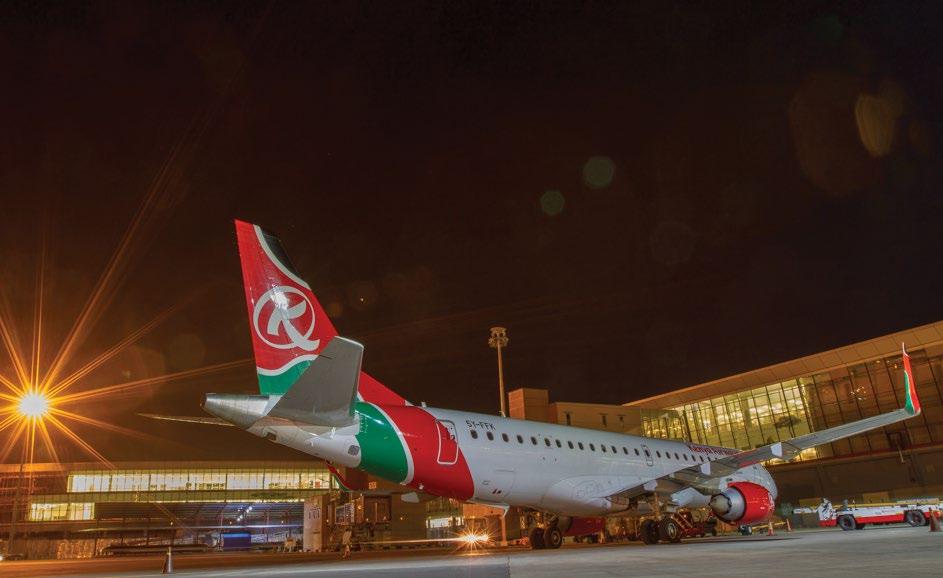
Integrated Customs Management System (iCMS) as a logistics system has been implemented in Kenya to modernize customs reducing delays and improving efficiency for trade.
Kenya enjoys preferential trade access through various regional and international agreements, making it an ideal launchpad for global exports. As a member of the East African Community (EAC), COMESA and the African Continental Free Trade Area (AfCFTA), Kenya offers seamless access to a regional market. Additionally, frameworks like the African Growth and Opportunity Act (AGOA) and bilateral agreements with the EU, UK and China allow Kenyan exports to reach key global markets under reduced tariffs and streamlined customs procedures.


Ethically Sourced, Low-Carbon and Sustainable Kenyan Goods
In today’s market, sustainability is a competitive advantage. Consumers, retailers and governments are placing increasing value on products that are ethically produced, environmentally responsible and aligned with international social and environmental standards. Kenya generates most of its electricity from renewable energy, including geothermal, wind, solar and hydroelectric sources. Products made in Kenya inherently come with a lower embedded carbon cost compared to those from fossil-fuel dependent countries.
In addition to Kenya’s globally renowned agricultural products, Kenya exports: leather and textiles, processed foods and beverages, handicrafts and artisan products, minerals and industrial inputs.
Through Special Economic Zones (SEZs), Export Processing Zones (EPZs) and County Aggregation and Industrial Parks (CAIPs), the government is actively encouraging value-added manufacturing, ensuring goods are competitive, high-quality and aligned with evolving global market demands.
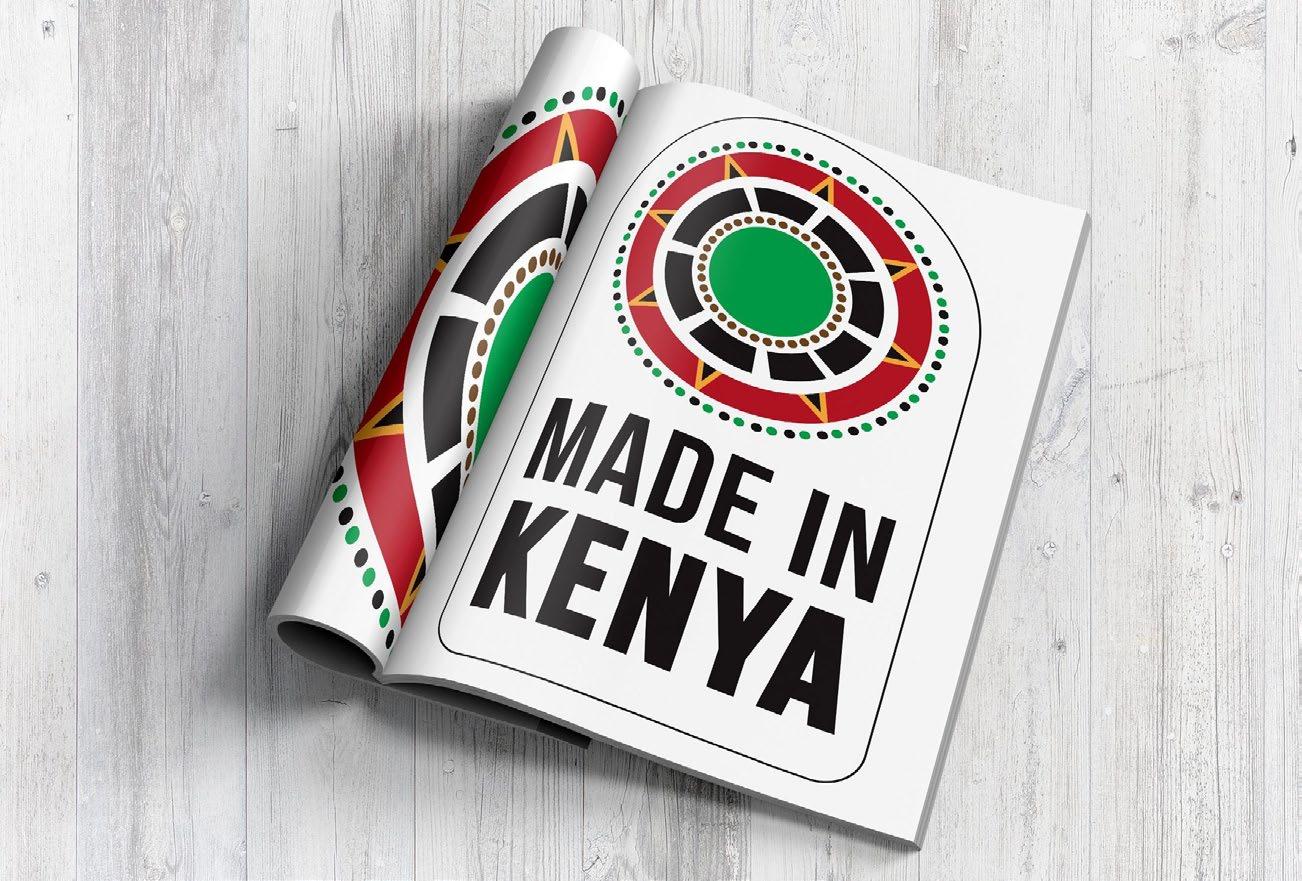
Kenya is a digital innovation hub exemplified by the development of mobile money platforms which revolutionize digital payments. This culture of innovation extends into fintech and trade tech supporting trade financing solutions as well as seamless B2B payments. This make cross-border business with Kenyan firms faster, more transparent, and less risky.
Kenya’s diplomatic strength boosts its credibility as a business partner. Nairobi hosts key regional and international organizations, including the United Nations Environment Programme (UNEP), reinforcing Kenya’s role as a diplomatic and economic anchor. Its leadership within the EAC and the African Union enhances regional stability and cross-border cooperation, key drivers of sustainable trade relationships.
Kenya’s government has shown clear intent and followthrough in creating a conducive environment for trade. Through a mix of digitization and regulatory frameworks, the country is building a business ecosystem that: increases transparency, enhances accountability, encourages compliance and innovation and protects investor rights. This makes Kenya a progressive, rules-based partner for investors and global firms looking for long-term growth.
Kenya is more than an economic influencer, it is a confident and connected nation ready to engage with the world through strong, mutually beneficial business relationships.
With a young, skilled workforce and a government that understands the importance of global collaboration, Kenya is an ideal destination for partners seeking transparency, reliability, and future ready outcomes.









By Mariam Maina; mmaina@brand.ke
Kenya highlighted its vast mineral wealth and export potential at the Africa Down Under (ADU) Conference & Exhibition held in Perth, Australia, from September 3rd to 6th, 2025. The event provided a vital platform for Kenya to showcase its mineral and gemstone wealth, promote worldclass coffee and tea brands, forge new investment and trade partnerships, and engage the Kenyan diaspora in expanding the country’s export footprint.
Australia remains a key market with an import value of USD 284.5 billion in 2024. Its expanding middle class and strong mining industry offer Kenya strategic opportunities to grow exports and attract investment. The ADU event, which gathered mining policymakers, executives, investors, and financiers worldwide, provided Kenya with the chance to elevate its profile as a mining and trade partner. The Kenyan delegation was led by the Cabinet Secretary, Mining, Blue Economy & Maritime Affairs, Hassan Ali Joho.
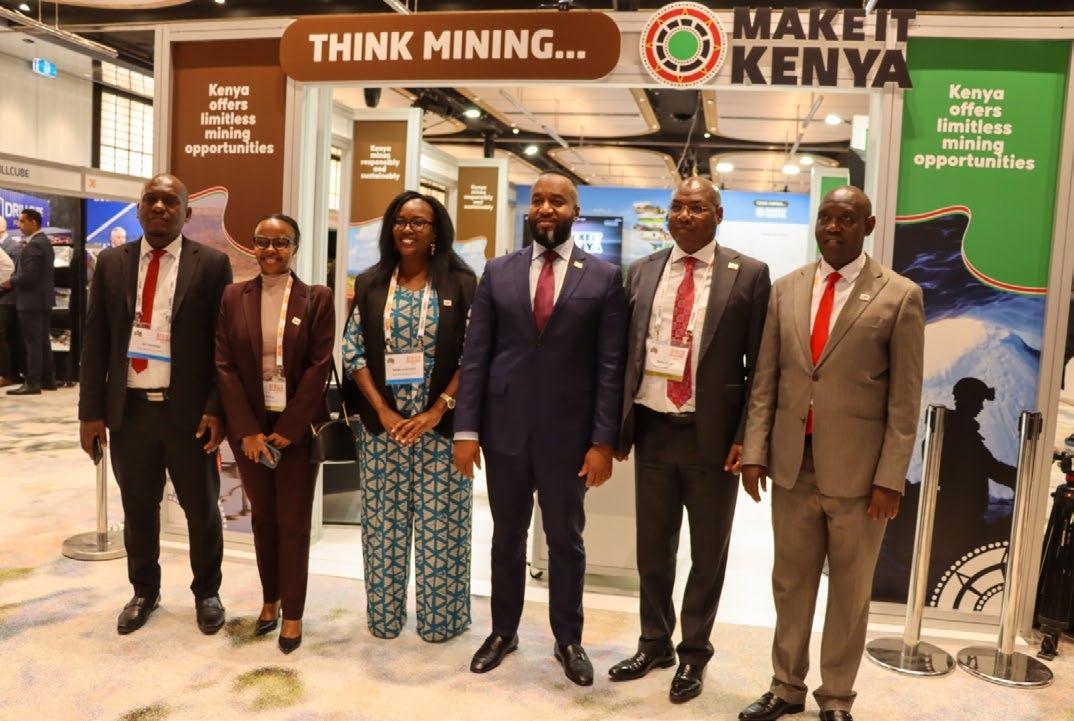
Kenya Export Promotion and Branding Agency (KEPROBA) took a central role in organizing Kenya’s pavilion, curating content that showcased the country’s critical minerals and gemstones. The Agency also facilitated coffee and tea tasting activities and distributed important promotional materials, including the Kenya Critical Minerals Catalogue and Mining Handbook, among participants and potential investors. These efforts were integral to the high-level side
event, “Kenya: Unlocking Mineral and Investment Potential,” designed to draw greater attention to Kenya’s resources and investment climate.
A Diaspora Forum held on September 6th, 2025 led by CS Joho, further engaged Kenyans abroad to support export growth. KEPROBA distributed Kenyan products and encouraged diaspora members to serve as Brand Kenya ambassadors. Moreover, a Kenyan resident in Perth announced plans to open a Kenya-branded Tea Café, seeking partnerships for tea sourcing and branding, while diaspora attendees committed to mobilizing networks to boost Kenyan product visibility in Australia.
Following the conference, KEPROBA met with Kenya’s High Commissioner to Australia, H.E. Ambassador Wilson Kogo, and Deputy Head of Mission, Amb. Fred Ishikita, to discuss ongoing collaboration. The ambassador expressed appreciation for KEPROBA’s role in establishing the Kenya Pavilion and stressed joint efforts to engage diaspora entrepreneurs in strengthening Kenya’s exports. The High Commission also requested detailed market data to refine sourcing and export strategies. Plans were made for a webinar connecting Kenyan exporters and Australian importers, along with coordinated development of an export strategy for the Australian market with government agencies.
A quick market survey revealed challenges for Kenyan products in mainstream supermarkets such as Woolworths, with no Kenyan items stocked. However, niche outlets like the Safari Africa Shop and Africa Shop in Maddington offered promising platforms, with the latter expressing interest in direct sourcing from Kenya. This presents new opportunities for Kenyan exporters to bypass brokers and access specialized markets in Australia.
By Gertrude Mirobi: gmirobi@brand.ke
The Kenya Export Promotion and Branding Agency (KEPROBA), in partnership with DHL, hosted a webinar on Unlocking U.S. Markets: U.S. Customs Regulatory Update –De Minimis Removal on 25th September 2025.
The session was part of the ongoing engagements under the Memorandum of Understanding (MoU) signed between KEPROBA and DHL on 31st July 2025. The MoU aims to strengthen the capacity of Small and Medium Enterprises (SMEs) through training, brand development, facilitation of market access, and the provision of competitive logistics solutions. It also focuses on enabling exporters to leverage e-commerce, social media, and traditional market routes to expand their global footprint.
The webinar sought to raise awareness of recent changes in U.S. customs regulations, particularly the revocation of the De Minimis rule, which previously allowed duty-free entry for shipments valued below USD 800. This regulatory shift carries significant implications for e-commerce exporters, who will now face additional documentation and customs clearance requirements.
Speakers emphasized the need for SMEs to stay informed and adapt to the evolving compliance environment. Participants were cautioned that all shipments to the U.S. now require formal customs clearance regardless of value, underscoring the importance of correct use of HS codes, accurate indication of country of origin, and detailed commercial invoices. DHL introduced its myGTs platform to support exporters in ensuring compliance and minimizing the risk of delays caused by incomplete documentation.
The session further highlighted tariff adjustments and the potential for clearance delays if exporters fail to meet updated documentation requirements. DHL assured SMEs of its continued support through package consolidation services via break bulk logistics and introduced its API integration option to streamline backend logistics for online businesses. The distinctions among DHL Express, DHL Global Forwarding, and DHL Supply Chain were also clarified to help exporters identify the most suitable logistics solutions for their operations.
Beyond compliance, the webinar explored market opportunities in the United States for Kenyan exports such as dried vegetables, cereals, and home décor. SMEs were encouraged to engage with regulatory bodies such as KEPHIS and the Directorate of Veterinary Services to ensure compliance with export requirements. Participants were also urged to leverage the support of the Kenya Embassy in Washington, D.C., the U.S. Embassy in Nairobi, and relevant industry associations for market intelligence and networking opportunities.
Speakers noted that the removal of the De Minimis threshold would result in higher export costs, mandatory documentation, and longer clearance times—factors that could pose challenges to SMEs if they are not
adequately guided. Both KEPROBA and DHL reaffirmed their commitment to helping exporters navigate this new regulatory landscape. KEPROBA pledged continued support through training, branding, and trade intelligence, while DHL reiterated its dedication to assisting SMEs in enhancing their competitiveness through efficient logistics and compliance solutions.
As part of the follow-up, KEPROBA and DHL announced plans to host monthly SME export clinics and sector-specific webinars. These sessions will focus on key export markets to provide targeted insights and practical value for Kenya’s exporter community. Participants were encouraged to complete the post-webinar survey to inform future sessions and to seek one-on-one consultations with both KEPROBA and DHL.
This collaboration underscores the shared vision of both organizations, to build a resilient, competitive, and globally compliant SME export sector that continues to position Kenya as a trusted trading partner in the international market.
